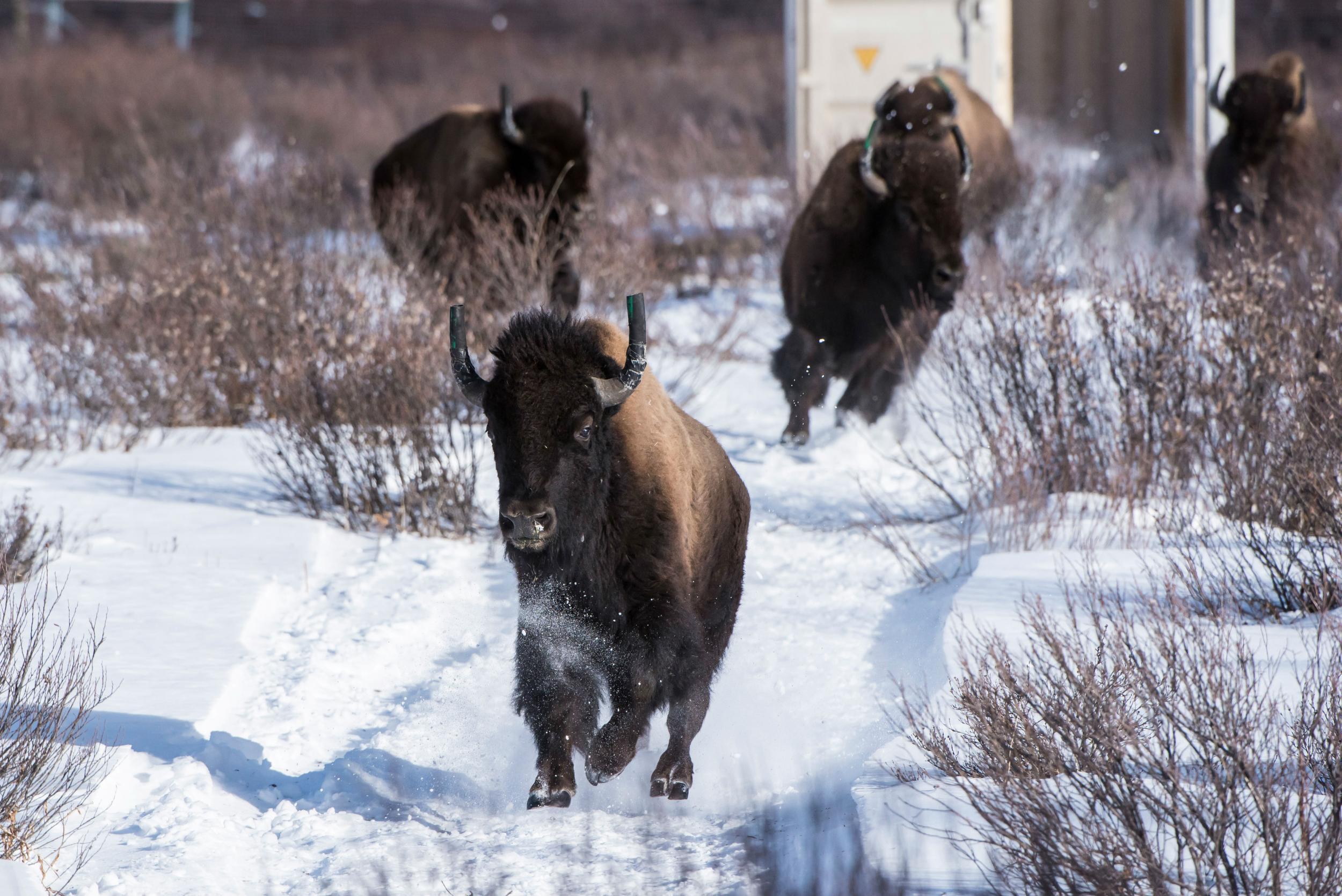Wild bison roam Canada's oldest national park for first time in more than a century
The animals were largely exterminated in Canada in the late 19th Century by hunters
Your support helps us to tell the story
From reproductive rights to climate change to Big Tech, The Independent is on the ground when the story is developing. Whether it's investigating the financials of Elon Musk's pro-Trump PAC or producing our latest documentary, 'The A Word', which shines a light on the American women fighting for reproductive rights, we know how important it is to parse out the facts from the messaging.
At such a critical moment in US history, we need reporters on the ground. Your donation allows us to keep sending journalists to speak to both sides of the story.
The Independent is trusted by Americans across the entire political spectrum. And unlike many other quality news outlets, we choose not to lock Americans out of our reporting and analysis with paywalls. We believe quality journalism should be available to everyone, paid for by those who can afford it.
Your support makes all the difference.A herd of plains bison has been reintroduced to Canada’s oldest national park, more than a century after the iconic North American animal roamed the Great Plains and eastern slopes of the Canadian Rocky Mountains.
The government agency Parks Canada, released 16 selected bison in the Banff National Park in central Alberta. The herd will be monitored in an enclosed pasture for about 16 months before being released into the 460-square-mile (about 1,200-square-km) reintroduction zone in the remote eastern slopes of the park.
Canada’s Environment and Climate Change Minister Catherine McKenna said that bison were an icon of the country’s history, as well as integral part of the lives of indigenous peoples.
“By returning plains bison to Banff National Park, Parks Canada is taking an important step towards restoring the full diversity of species and natural processes to the park’s ecosystems while providing new opportunities for Canadians and visitors to connect with the story of this iconic species,” she said.
Environmental historian John Sandlos, of the Memorial University of Newfoundland, said plains bison were exterminated in Canada in the late 19th century, mostly to provide a supply of dried meat to fuel the fur trade.
Mr Sandlos said the current reintroduction of plains bison to Banff National Park was significant because it restored a keystone species that will maintain the ecological integrity of the park through interactions with other species.
While there have been other bison reintroductions in the Grasslands and Prince Albert National Parks, he said, this project “has the potential to create a large free-roaming herd of bison in southern Canada, a wildlife assemblage that has not existed in the region since the late 19th century.”

“In a broad sense, the reintroduction program is a small but significant step toward restoring a species that is ecologically extinct across most of its former range,” Mr Sandlos told The Independent.
Theodore Binnema, an environmental history professor at the University of Northern British Columbia, said that the reintroduction of the plains bison to Banff was a complicated issue.
Mr Binnema said the bison population during the pre-settlement era was actually relatively small, and that the herd has the potential to grow far larger that it would have been during that time.
“This could produce an ecosystem in the park very unlike it ever was in the past,” Mr Binnema said, bringing into question whether reintroducing the bison actually fulfils Parks Canada’s mandate to protect the ecological integrity of park spaces.

Join our commenting forum
Join thought-provoking conversations, follow other Independent readers and see their replies
Comments